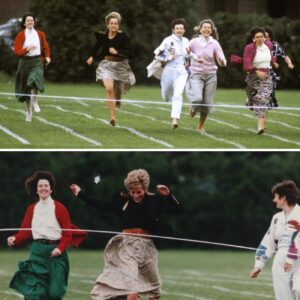It might be tempting to see some tidy symbolism and greater significance in Novak Djokovic’s loss to Jannik Sinner in the Australian Open semifinals.
The end of the thirtysomething Djokovic’s 33-match winning streak at Melbourne Park. The end of his bid for an 11th championship there and 25th Grand Slam trophy overall. The breakthrough for the twentysomething Sinner, an up-and-coming talent who will now get to play in his first major final, against Daniil Medvedev on Sunday.
So don’t be too quick to write off the 36-year-old from Serbia this time, either, as he essentially told the world himself after bowing out 6-1, 6-2, 6-7 (6), 6-3 against Sinner on Friday.
“Doesn’t necessarily mean that it’s beginning of the end, as some people like to call it,” the No. 1-ranked Djokovic said. “Yeah, let’s see what happens in the rest of the season.”
At first glance, that seems like a bit of a warning to the rest of the tour.
A few moments later, Djokovic sounded more contemplative and somewhat less sure of what’s to come, saying: “I just hope that I’ll get a chance to come back, to play at least another time and go through the emotions once more.”
Either way, his takeaway from this particular afternoon was that he played quite poorly — “Everything, you know, was just subpar” — against an opponent who showed off some of his best tennis and was, in a word, “flawless.”
That’s a fair assessment.
There might not be a much larger meaning, even if Djokovic entered the day a combined 20-0 in semifinals and finals at Melbourne Park. And even if No. 3 Medvedev vs. No. 4 Sinner (they’re scheduled to get started Sunday at 7:30 p.m. local time, which is 3:30 a.m. ET) represents the first Australian Open men’s final without at least one of Djokovic, Rafael Nadal or Roger Federer participating since Marat Safin defeated Lleyton Hewitt in 2005.
For Medvedev, a 27-year-old from Russia who won the 2021 U.S. Open, this will be his sixth Grand Slam final — and first against someone other than Djokovic or Nadal. Medvedev moved on by coming back to eliminate Alexander Zverev 5-7, 3-6, 7-6 (4), 7-6 (5), 6-3 in a semifinal that came after Sinner-Djokovic.
“Obviously it means so much to me to beat Novak here in Melbourne,” said Sinner, a 22-year-old from Italy who lost to Djokovic in the Wimbledon semifinals last July and has now won three of their past four matchups, “but … I know that the tournament is not over.”
It was remarkable to see Djokovic, the greatest returner of his generation and perhaps ever, unable to make a dent on Sinner’s serve. Consider: This was the first completed match in a Grand Slam career spanning more than 400 contests that Djokovic did not manage to earn a single break point.
Another unusual sight was all of the miscues coming off Djokovic’s racket. He finished with nearly twice as many unforced errors as Sinner, 54 to 28.
Djokovic hadn’t lost a match at the Australian Open since 2018 — a span of 2,195 days — because he collected four championships in a row there and didn’t compete at Melbourne in 2022, when he was deported from the country for not being vaccinated against COVID-19.
For all of those fascinated by numbers, the loss to Alcaraz at Wimbledon was Djokovic’s first setback there since 2017 — a span of 2,195 days — because he had collected four championships in a row there; no one competed at the All England Club in 2020, when that tournament was canceled amid the pandemic.
He, for one, was not interested in drawing too many conclusions Friday.
“I’m kind of hot-headed right now,” Djokovic said. “After the match, it’s very difficult to reflect on things in a more profound way.”
Good advice to anyone ready to dismiss his chances moving forward.
AP Sports Writer John Pye in Melbourne, Australia, contributed to this report.






